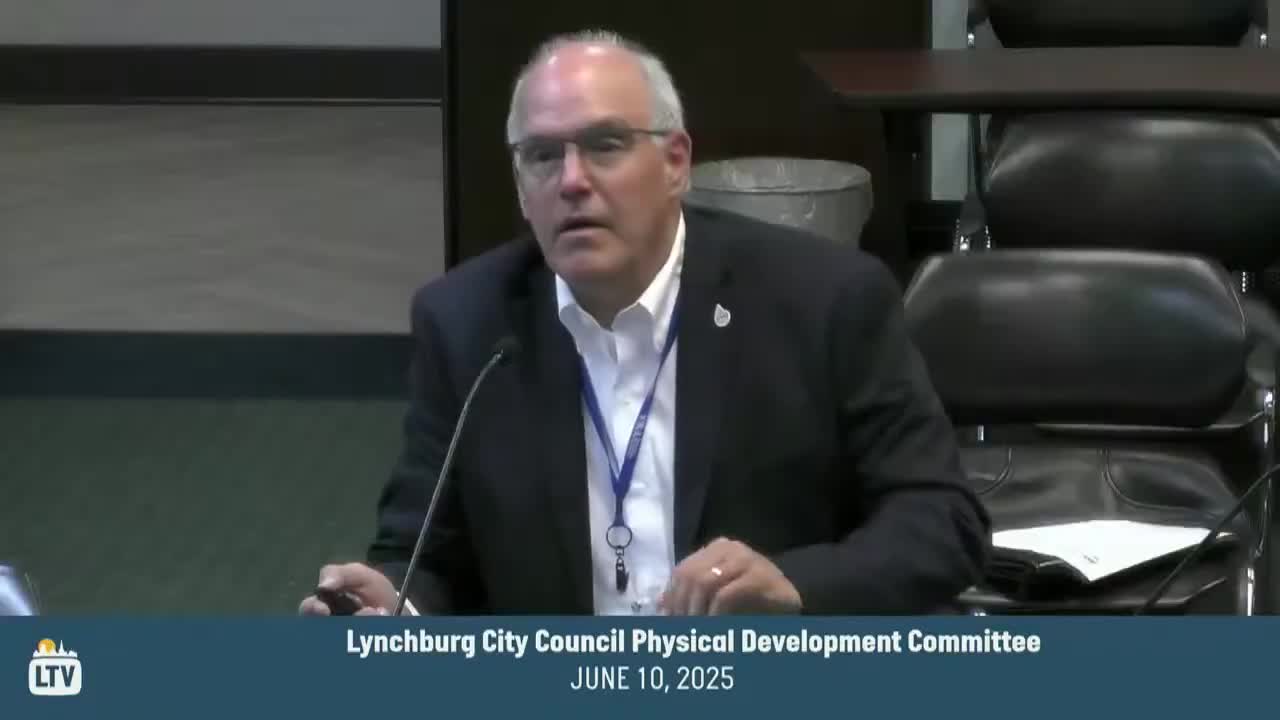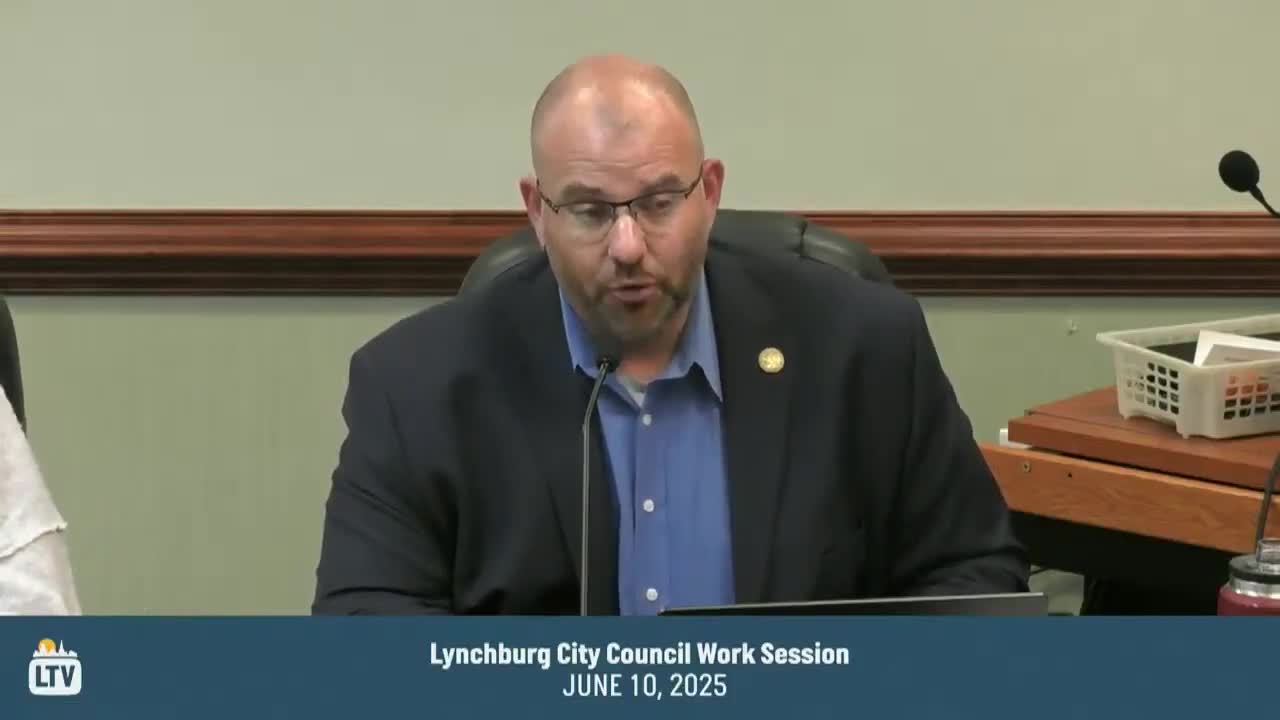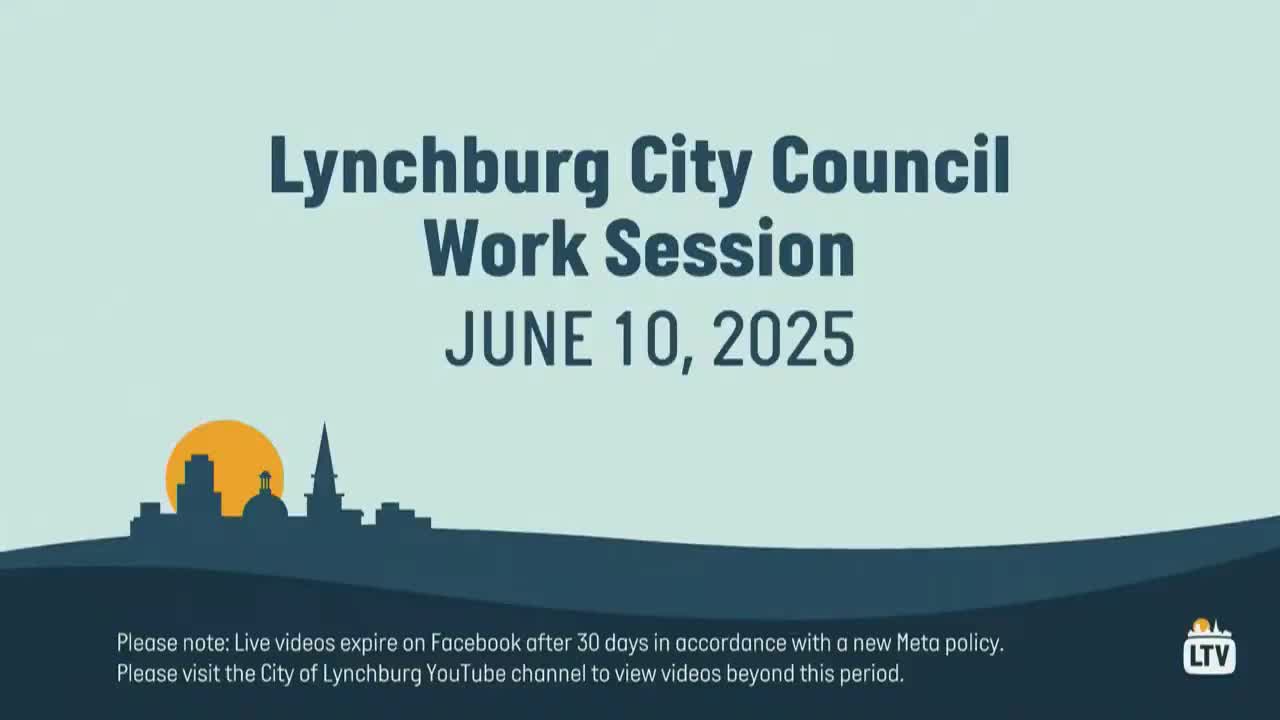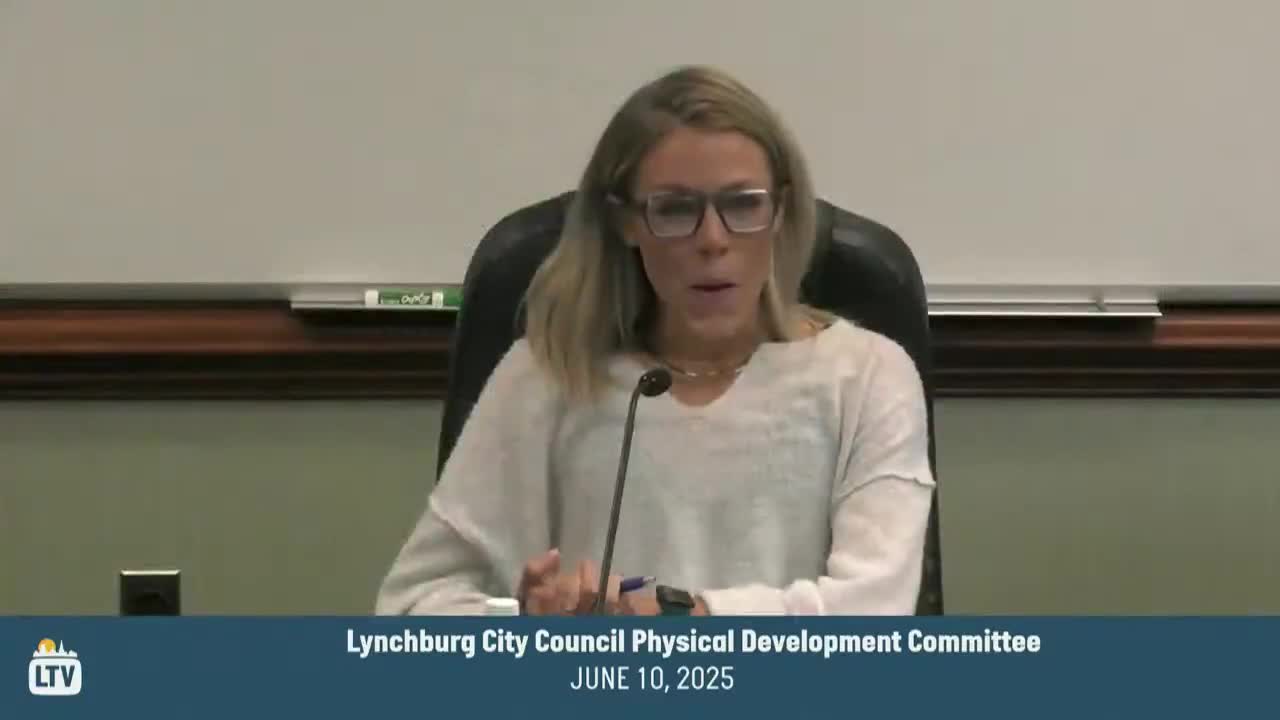Article not found
This article is no longer available. But don't worry—we've gathered other articles that discuss the same topic.

Lynchburg staff recommend intent to renew Campbell County Utilities water contract; council referral set for June 24

Lynchburg council adopts resolution acknowledging 2023 defamatory remarks; directs staff to review city-managed digital content

Lynchburg budget work session: staff model shows cutting car tax and raising real-estate and lodging taxes would shift burden from vehicle owners to property/hy

